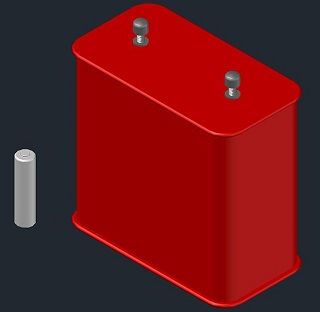Solar PV and Battery Back-Up — An Oddity

If this is to be believed, a power utility (Southern California Edison) denied a homeowner’s application to connect his solar PV array to the grid because the batteries used to store energy for emergency backup power when the grid went down were considered “power generators” and not energy storage devices. Apparently, the project did not qualify for their net metering program because the utility could not distinguish between power produced by the solar panels and power produced by the batteries, which it considers a nonrenewable source of power.
Obviously, batteries don’t generate power. We all learned that in second or third grade. Maybe they think the homeowner has a coal-fired power plant in his garage? Sorry, I’m lost here.

My guess:
Remember that I don’t know anything about the minutiae of California Edison… so this is a guess:
Residential purchase agreements for solar energy are usually a good deal for power companies. Most people pay a fixed rate for power regardless of when they use it. There are some that choose time-of-day contracts, but for most people the rate is fixed. But for the power company, time-of-day matters; a LOT.
The price of energy on a hot summer day can easily drift above ~$500-$1000/MWh, and is almost always above $300/MWh for at least an hour or two. If the power company is buying the excess residential energy at the fixed rate (or slightly below fixed rate, depending on the contract), then there’s sufficient profit during the peak spikes that the power company can absorb the rest of the high-priced energy and still have sufficient margins to pay for O&M and capital on the transmission grid. To put numbers to it: If you’re paying $120/MWh, then your power company could only afford to buy your energy at $120/MWh if you provide it during a time when the average price of energy sold is >$160/MWh… because they need to pay for new transmission and maintenance/upgrades on old transmission.
Solar works for this, because the residential demands are low during the peak periods of the day, when the solar collectors are maxing out their production… so power companies can buy that energy and still balance the budgets.
If you have batteries, however… then most of your excess during the day is going to recharging your batteries, so the only time you have excess to sell back to the power company is during sunny spring and autumn days, when the peak price of energy is reasonably low (because no-one else is using that much power over a 24-hour period either)… If the power company must pay fixed rates for energy only on days when the energy has low value, then it cannot work.
I’ve said it a thousand times, it’s positively stupid to add battery backups for solar power. We have a desperate need for additional energy during the day, so energy is extremely expensive during the day… and we have excess energy galore during the night, so energy is extremely cheap… Why on Earth would someone waste tons of money to save the expensive daytime energy for use during the night? Scrap the batteries, sell the energy to the grid during the day, and use grid energy at night… It’s more cost effective overall, and if everyone did that then the chance of roving blackouts goes down a great deal.
All I can say is “sadly, yes”. I will fall into this catagory. Power companies will not grid tie systems that have any kind of storage involved. I keep batteries for times when the grid goes down. It happens enough that it is worth it. Grid tied systems don’t work when the grid goes down. This is called “Anti Islanding” and the inverters are designed that way to stop utility workers from getting electrocuted during repairs. Unfortunately that means that the nice solar array that you have on the roof is useless unless the grid is up and running. Just ask the people of NJ after Sandy. In my opinion the utility company should be responsible for disconnecting your house from their system if they can’t keep their grid up. This is easily accomplished with a large contactor who’s coil is tied to the grid. As long as the grid is energized the contactor is allowing power to flow to your house. When the grid goes down it opens and stops power from going to your house. Fortunately, keeping your grid tied system going when there is no grid is not all that hard and I will make those provisions when I finally get a grid tied system. That way at least I can run the house during the day when the sun is shining and the grid is down.
Speaking of batteries, mine should be leaving China in a couple of weeks.